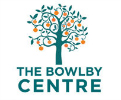Certificate in Attachment Theory and Skills
Applications FULL and now CLOSED
Contact admin@thebowlbycentre.org.uk to be added to waiting list for next intake.
10-day course, running monthly on Saturdays from September 2024 to July 2025
Take a deep dive into John Bowlby’s attachment theory exploring attachment behaviours and the lifelong need for attachment, from infancy to adulthood. This course delves into how different attachment styles influence personal and professional relationships, aiding individuals in comprehending their own patterns and fostering healthier interactions with others, whether as partners, caregivers, parents, friends, or within professional contexts such as client relations and leadership dynamics.

Duration:
10 weeks (Sept 2025 – July 2026)
Start Date:
September 2025
Delivered:
Online (non-recorded sessions)
Course Fee:
£1,632
Course Aims
To provide you with:
- an introductory knowledge and understanding of attachment theory and research
- an understanding of your own attachment patterns, how these have developed to protect you and how these might impact your professional and personal life
- an understanding of how you can apply attachment patterns and these protective strategies to your personal and professional lives, for example as parents/caregivers/ partners, teachers, health and social care workers, and friends
- an opportunity through skills and facilitated group work to learn more about yourself and how you interact with others and why and how they interact with and impact you

Who is the course aimed at?
All are welcome to apply for this course as we believe that most people will benefit from an understanding of attachment theory as it can be applied to both your personal and professional life.
Reasons for applying :
- An interest in exploring training as an attachment-based psychoanalyst.
- You are involved in or interested in the care and welfare of children, including parents and carers, foster parents, parents through adoption, step-parents, childminders, grandparents, and nursery workers.
- You are a health or social care worker- providing care for all ages through the life cycle, as attachment is life-long.
- You work in maternity pre-natal and post-natal services, or as a doula.
- You are a hospice workers or death doula.
- You work in an educational setting from nursery to Higher Education.
- You are a team leader or manager.
- You work in a religious setting.
- You work in the voluntary sector.
What are the dates of the course? 2025-2026
2025 Autumn Term 1
- September 13th
- October 4th
- November 22nd
- December 13th
2026 Spring Term 2
- January 24th
- February 7th
- March 14th
2026 Summer Term 3
- May 16th
- June 13th
- July 11th
About This Course
This course will provide you with an introduction to John Bowlby’s attachment theory. You will learn about the attachment system and attachment behaviours, and the lifelong need for attachment ‘from cradle to grave’. It is aimed at those seeking a deeper understanding of how attachment impacts personal and professional lives. It is therefore suitable for anyone who is keen to examine their own personal development, their relationships as a partner, caregiver, parent, and friend, as well as the professional seeking a deeper knowledge of attachment as applied to clients, work relationships, and leadership.
You will learn how different people will seek to create intimacy and closeness in their relationships whilst others seek to avoid it. How those who appear ‘clingy’ and those who appear ‘withdrawing’ may seek each other out and have a particular relationship dance which causes ongoing distress and unhappiness. Why do some panic at the slightest hint of rejection, and others appear rejecting? Why do some find it easy to trust and rely on others and some struggle to do this? Some people will spend much of their time thinking and talking about their relationships, and others not at all. An inconsistent way of relating can often confuse and frighten others away. Without an understanding of attachment styles, even loving relationships can be drawn into volatile and unhelpful dynamics, destroying the bonds we most value, with little or no understanding of why this has happened.
The way we have been ‘parented’ will impact our attachment style, and these patterns can be traced back through several generations. Some parents/caregivers will blame themselves for not being ‘good enough’ without understanding their own attachment style and how this may have impacted on their parenting style. With an attachment perspective, there is no blaming or shaming, but understanding.
Children and young people will have their own attachment styles and this can impact their relationships with parents/carers, teachers, friendships, and even their experience of school.
All professionals will take their attachment style into the workplace, impacting their behaviours, relationships with colleagues, and how they both lead and respond to authority.
